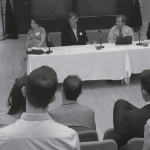High Court considers application of Parkinson and Article 2
Case Note: Maguire
“Article 2: Are the circumstances of the case such as to call a state to account”
Factual Background
The inquest into the death of Jackie Maguire, a 52 year old female with Down’s Syndrome and moderate learning difficulties, who resided in a state funded care home and was the subject of a deprivation of liberty order, came before the Blackpool Coroner’s Court.
HMC for Blackpool had agreed with the family that Article 2 was arguably engaged but a number of days prior to the substantive hearing the judgment of R(Parkinson) v HM Senior Coroner for Kent was handed down, which gave guidance on the circumstances in which Article 2 is arguably engaged in relation to healthcare deaths. Accordingly, it was accepted by all IPs at the commencement of the inquest that Article 2 needed to be re-visited prior to the Jury receiving direction.
At the conclusion of the evidence the family argued that Article 2 was still engaged on the basis that, Parkinson being accepted as applicable authority, either a) there were systemic failures or b) that the case fell within the ‘exceptional case’ category set out in Parkinson and/or c) that Rabone was engaged in that there was a real and immediate risk to life. Further, the family argued that neglect should be left to the jury either in respect of individual failures made by different organisations or alternatively on a cumulative basis, in essence totting up potential failures made by different organisations involved in providing care to Jackie (including the care home, Jackie’s GP, the out of hours GP and paramedics).
The other IPs argued that (a) any failures were individual failures, there being appropriate overarching systems in place and that, (b) based on the information available at the time to those involved in the provision of care and/or medical treatment to Jackie, there was not a real and immediate risk to life; rather Jackie, whilst poorly, was not showing any red flag signs, and (c) that the facts of the case did not fall within the Parkinson ‘exceptional category.’
HMC ruled that the allegations against Jackie’s carers and healthcare providers amounted to allegations of individual negligence, which Parkinson had clarified as falling outside the state’s obligations under article 2 such that Article 2 was not engaged and that it was Galbraith unsafe to leave neglect to the Jury, there being insufficient evidence to do so.
The family applied to Judicially Review the Coroner’s decision in respect of both Article 2 and neglect. By the time of the hearing their arguments in respect of Article 2 (having shifted) were that a) Parkinson was not applicable on the basis that Jackie’s death could not be classed as a healthcare death; and b) Jackie fell into a class of vulnerable individuals who were in the care of the state such that Article 2 was triggered, albeit it was accepted that it was not clear from the European case law as to what test should be applied to ascertain who fell into this class.
The key issues were a) was there a class of vulnerable individuals in the care of the state that triggered Article 2? And, if so, what legal test should be applied to the same; b) could actions/inactions across a number of agencies be aggregated to substantiate neglect in the event that the individual actions/inactions in themselves could not amount to neglect.
Judgment
In a 23-page Judgement the Divisional Court set out the State’s duties under Article 2 and noted that case law had expanded the positive duty to include death from egregious lack of medical treatment on the basis that the deceased had been vulnerable and unable to escape from the dangers posed by detention. Further, this reasoning had been extended to, for example, cases concerning persons not detained but in respect of whom the State had taken control, such as suicide of conscripts and transfer of elderly persons from one care home to another. However, Parkinson was authority for the proposition that healthcare deaths concerning errors of judgment and negligent coordination amongst healthcare professionals will not ordinarily trigger article 2. Moreover, the duty under Article 2 will not always be engaged by the death of a detainee or of a person in the care of the state.
The Court found the following principles to have emerged:
(a) Article 2
(1) First, in the absence of systemic or regulatory dysfunction, article 2 may be engaged by an individual’s death if the state had assumed responsibility for the individual’s welfare of safety.
(2) Secondly, in deciding whether the State has assumed responsibility for an individual’s safety, the Court will consider how close was its control over the individual.
(3) The touchstone is whether the circumstances of the case are such to call a state to account. In the absence of either systemic dysfunction arising from a regulatory failure or a relevant assumption of responsibility the state will not be held accountable under article 2.
(4) Where the state has assumed some degree of responsibility for the welfare of an individual who is subject to a DOLS but not imprisoned or placed in detention the line between state responsibility and individual actions will sometimes be a fine one. However, it is the function of the Coroner to draw it. This Court will not interfere save on grounds of irrationality or other error of law.
In this case such failings as there may have been were not capable of demonstrating systemic failure or dysfunction, rather they were attributable to individual actions and do not require the state to be called into account; each case turns on its facts.
On the facts of this case it was open to the Coroner to conclude that this was a medical case and that a jury could not safely find that Jackie died as a result of any actions or omissions for which the state would be responsible.
(b) Neglect
(1) The approach taken by the Coroner to the evidence could not be faulted. He considered all the relevant evidence that may point to neglect as individual acts as well as considering the potential for the cumulative effect of each of the individual acts;
(2) The Coroner concluded that there was no individual failing that could safely be said to be gross and the Court agreed with that assessment of the evidence.
Discussion
a) Article 2
Accordingly, notwithstanding lack of capacity, vulnerability, the existence of a DoLS, and allegations of systemic failures on the part of the various organisations, in the absence of systemic failures or an adequate assumption of responsibility, this was not sufficient to transform the death from a ‘hospital death’ (as defined in Parkinson) into an Article 2 death because the circumstances were not such as to call the State to account.
b) Neglect
Given that this was not the main issue argued by the family the Judgment in this respect is understandably brief. The Court considering HMC had appropriately considered both individual alleged failures and the aggregation of alleged failures across multiple organisations and decided that there was insufficient evidence to safely support leaving neglect to the Jury.
Conclusion:
Whilst providing welcome clarity on the issue of the extension of article 2 to natural causes, hospital deaths in cases of vulnerable, learning disabled adults it is clear that the Court were firmly of the view that each case must turn on its own facts and that the Coroner is best placed to determine where the line to be drawn falls.
(The decision is currently the subject of an application to appeal by the family and hence the matter may not yet be concluded).
Michelle Fanneran – Counsel for the 2nd IP (NWAS)
Ana Samuel – Counsel for the 3rd IP (Blackpool Teaching Hospital)


